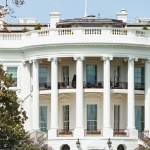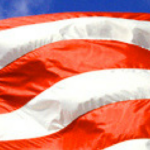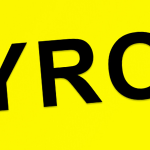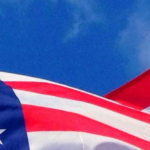On December 14, 2018, a federal district court judge for the Northern District of Texas issued a ruling striking down the Affordable Care Act (ACA) on the grounds that the Individual Mandate was unconstitutional, and that the rest of the law cannot withstand constitutional scrutiny without the Individual Mandate.
District Court Judge Reed O’Connor’s decision relates to a lawsuit filed earlier this year by 20 states and two individuals. The plaintiffs argued that the Tax Cuts and Jobs Act of 2017 — which amended the Individual Mandate to eliminate the penalty on individuals that failed to purchase qualifying insurance effect January 1, 2019 — rendered the Individual Mandate unconstitutional. The plaintiffs further argued that the Individual Mandate was inseverable from the rest of the ACA, and, therefore, that the entire ACA should be struck down.
The defendants in this case were the United States of America, the U.S. Department of Health and Human Services (HHS), Alex Azar, in his capacity as the Secretary of HHS, and David J. Kautter, in his capacity as the Acting Commissioner of the Internal Revenue Service (IRS). 16 states and the District of Columbia intervened as additional defendants.
In order to properly understand the district court’s ruling, it is necessary to revisit the Supreme Court’s 2012 decision on the constitutionality of the ACA, National Federal of Independent Business v. Sebelius (NFIB). In that case, 26 states, along with several individuals and a business organization challenged the ACA’s Individual Mandate and Medicaid expansion provisions as exceeding Congress’ enumerated powers. In a complicated decision, the majority of Justices ruled that the Individual Mandate was unconstitutional under Congress’ authority to regulate interstate commerce, but that the provision could be salvaged under Congress’ authority to lay and collect taxes. In reaching this conclusion, the majority of Justices focused on the “shared responsibility payment” aspect of the Individual Mandate, which imposed a tax on those individuals that failed to purchase or otherwise obtain qualifying health insurance. The majority of Justices concluded that the shared responsibility payment was a “tax.” It was therefore constitutional under the Congress’ general taxing authority.
In sum, the Supreme Court ruled that Congress lacked the power to compel individuals to buy qualifying health insurance, but that it could constitutionally impose a tax on those that failed to purchase or otherwise obtain qualifying health insurance.
In the current case, the court was asked to reconsider the Individual Mandate in light of the TCJA, which “zeroed” out of the shared responsibility payment, effective January 1, 2019. The plaintiffs argued that the Individual Mandate could no longer be justified as a valid exercise of Congress’ taxing authority. The federal government and its agents did not necessarily contest the plaintiffs’ argument with respect to the Individual Mandate. By contrast, the intervening states and the District of Columbia argued that the Individual Mandate could continue to be construed as a tax because it continues to satisfy the factors set forth by the Supreme Court in NFIB.
Judge O’Connor sided with the plaintiffs, holding that, because the Individual Mandate would no longer trigger a tax beginning in 2019, the Supreme Court’s ruling on this point in NFIB was no longer applicable. He therefore concluded that the Individual Mandate could no longer be upheld under Congress’ taxing authority. Judge O’Connor then fell back on the Supreme Court’s previous holding that the Individual Mandate, as a stand-alone command, remained unconstitutional under the Interstate Commerce Clause. Judge O’Connor then ruled that the Individual Mandate could not be severed from the rest of the ACA. On this point, the judge cited the express provisions of the ACA, as well as the Supreme Court’s decisions in NFIB and King v. Burwell.
What this decision means
On its face, the decision strikes down the Affordable Care Act in its entirety. However, the ruling is likely to be appealed to the Fifth Circuit Court of Appeals. Most legal experts expect that, regardless of the decision at the Circuit Court, the case is likely to make its way up to the Supreme Court.
Pending the resolution of these appeals, the Administration has adopted a “business as usual” approach. The White House has already indicated that it will not attempt to enforce the ruling during the appeals process. CMS Administrator Seema Verma recently tweeted that the decision will have “no impact to current coverage or coverage in a 2019 plan.”
The American Ambulance Association will continue to monitor this case as it makes its way through the appeals process, and we will notify our members of any new developments.














